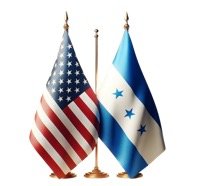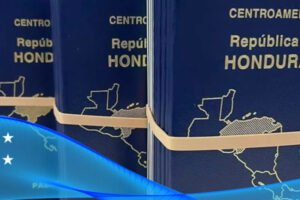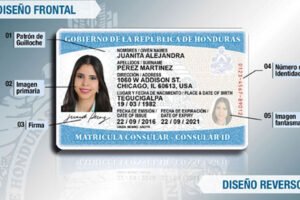We analyze which banks have the fewest requirements to open an account

Opening a U.S. bank account as a non-resident can be a challenge, especially for those who do not have a Social Security Number (SSN).
Fortunately, there are banks that facilitate this process for non-residents, allowing the opening of accounts with fewer requirements.
Several banks have adapted their policies to offer greater flexibility to this customer segment, understanding the specific limitations and needs of non-residents.
Outstanding Banks for their Flexibility
Several banks in the U.S. have been noted for offering simpler account opening processes tailored to non-residents. These include:
- Charles Schwab: Known for its customer service and investment options, Charles Schwab offers accounts that are accessible to non-residents. They may require additional documentation such as a valid passport, but not always an ITIN.
- Citibank: Offers a wide range of banking services and is known for its global presence. Citibank allows non-residents to open accounts, sometimes without the need for an ITIN.
- HSBC: With a strong international presence, HSBC is another viable option for non-residents. Its global approach facilitates the opening of accounts for individuals without SSNs.
- PNC: Offers checking and savings account options with minimum requirements for non-residents, and does not always require an ITIN.
- TD Bank: Known for its flexibility, TD Bank offers banking services to non-residents without the need for an SSN in many cases.
- U.S. Bank: This bank provides a variety of bank account options and financial services, accommodating customers who do not have a SSN.
- Wells Fargo: One of the largest U.S. banks, Wells Fargo offers several bank account options for non-residents that may not require an ITIN.
What Makes These Banks More Accessible?
- Alternative IDs: These banks often accept passports and other forms of international identification in lieu of the SSN.
- Flexible ITIN Requirements: Some banks do not require an ITIN, which facilitates account opening for non-residents who have not yet initiated U.S. tax processes.
- Simplified Processes: Procedures for opening accounts have been simplified, allowing non-residents to complete them with fewer barriers.
- Online Services and Personalized Assistance: These banks offer robust online platforms and assistance in several languages, making the process more accessible to people from different backgrounds.
Important Considerations
- Background Checks and Compliance: Despite the flexibility, these banks perform background checks and comply with federal regulations to prevent money laundering and other illicit activities.
- Diversity of Banking Products: In addition to savings and checking accounts, many of these banks offer investment and credit products that may be accessible to non-residents.
Required Documentation
Opening a bank account in the United States requires the presentation of certain essential documents. Although some banks offer flexibility for non-residents, most require basic documentation to proceed with account opening. Here we take a closer look at these common requirements and their importance.
Official Identification
- Importance: Official identification is essential to verify the applicant’s identity and to comply with regulations against money laundering and other illicit activities.
- Types of Accepted Documents:
- Valid Passport: Generally accepted by all banks; must be current and valid.
- National ID or Driver’s License: Some banks accept national IDs or driver’s licenses from other countries, as long as they are legible and valid.
- Green Card or Visa: For those who have legal status in the U.S., a valid green card or visa may be sufficient.
Proof of Address
- Purpose: Proof of address is required to confirm the applicant’s residence, which is important for both security and bank correspondence.
- Accepted Documents:
- Utility Bills: Electric, water, gas or telephone bills that clearly show the applicant’s address and name.
- Lease Agreement: A valid lease agreement serves as proof of residency. It must include the applicant’s name and home address.
- Official Correspondence: Some banks accept official correspondence, such as letters from the IRS or other government agencies, as proof of address.
Initial Deposit
- Objective: The initial deposit is a common practice in banking to activate the account. It serves as the first fund and shows the customer’s commitment to the account.
- Amounts and Variability:
- Amount: The amount of the initial deposit may vary from one bank to another. Some banks may require as little as $25, while others may ask for higher amounts.
- Flexibility: Some banks offer flexibility in the initial deposit, especially for students or certain types of accounts.
Additional Considerations
- Document Verification: Banks may require documents to be in English or provide a translation service.
- Updating Documents: It is important to keep documentation up to date, especially if there are changes in address or legal status.
- Banking Regulatory Compliance: Although requirements may be flexible, banks must comply with U.S. financial regulations.
Cost and Fee Evaluation
Choosing a U.S. bank account involves not only understanding the opening and maintenance requirements, but also a careful evaluation of the associated costs and fees.
These can vary significantly among banks and affect the total cost of maintaining the account.
Monthly Maintenance Fees
- Cost Variability: Monthly maintenance fees may vary by bank and account type. While $10 is a common average, some accounts may have lower fees or even be free under certain conditions, such as maintaining a minimum balance or performing a specific number of monthly transactions.
- Fee Waivers: Some banks offer maintenance fee waivers for students, seniors or accounts with a high average balance.
Fees for Use of Third-Party ATMs
- Additional Costs: Using ATMs outside the bank’s network may incur additional fees. These commissions can range from $2 to $5 per transaction.
- Free ATM Networks: Some banks have agreements with ATM networks, allowing customers to withdraw cash at no additional cost from a wide network of machines.
International Transfer Fees
- Significant Costs: International wire transfer fees can be one of the most significant costs associated with bank accounts, especially for non-residents who need to conduct cross-border transactions. These fees can range from $45 to $60 per transaction.
- Affordable Alternatives: Some banks may offer reduced fees or even free transfers for certain countries or under certain account plans. In addition, external money transfer services may offer more competitive rates than traditional banks.
Additional Considerations
- Fee Transparency: It is crucial that clients understand all fees associated with their bank account. Transparency in this aspect is essential to avoid surprises in account statements.
- Negotiation and Comparison: Potential clients should feel free to negotiate rates with banks or compare different institutions to find the best rates available.



